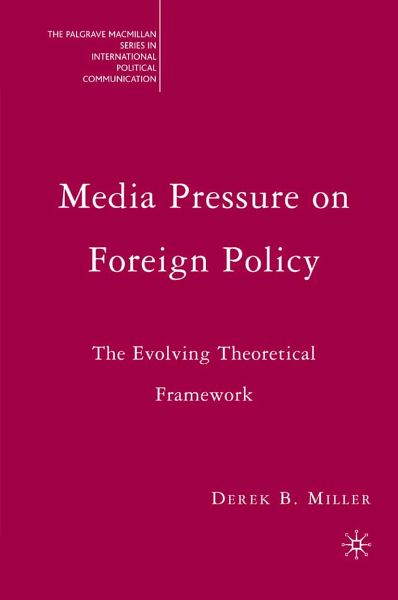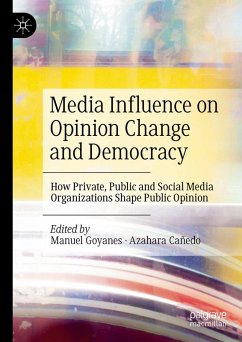
Media Pressure on Foreign Policy (eBook, PDF)
The Evolving Theoretical Framework
Versandkostenfrei!
Sofort per Download lieferbar
40,95 €
inkl. MwSt.
Weitere Ausgaben:

PAYBACK Punkte
20 °P sammeln!
This study offers an explicit theory of media pressure - what it is, how it works, how it can be measured - based in part on the 'positioning theory' in discursive psychology. This offers the first independent and comparative history and analysis of media pressure vs. coverage, through the lens of the insurrection against Saddam Hussein in 1991.
Dieser Download kann aus rechtlichen Gründen nur mit Rechnungsadresse in A, B, BG, CY, CZ, D, DK, EW, E, FIN, F, GR, HR, H, IRL, I, LT, L, LR, M, NL, PL, P, R, S, SLO, SK ausgeliefert werden.












